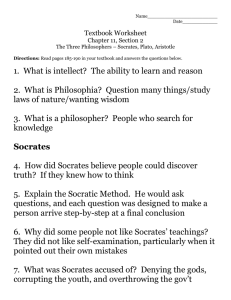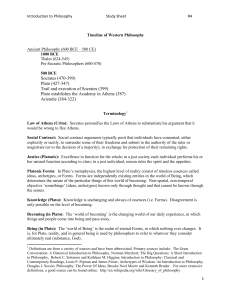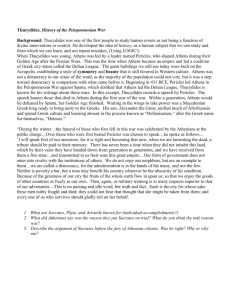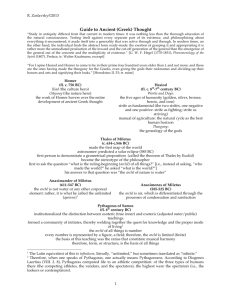Three Great Greek Philosophers - Ms. halty`s class
advertisement
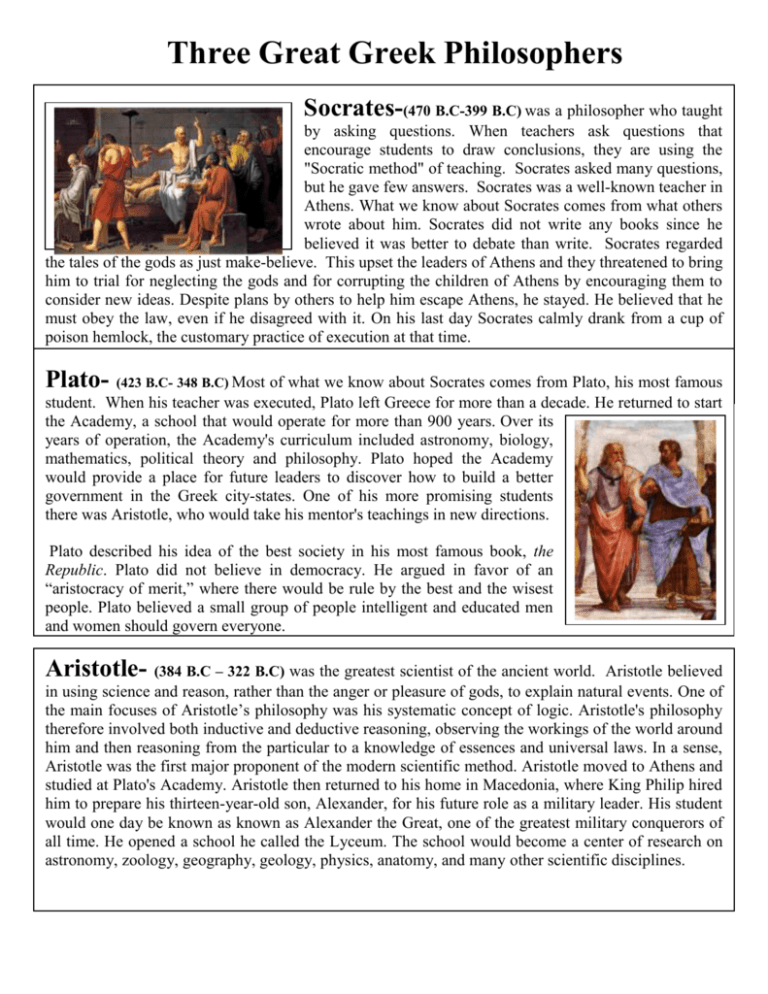
Three Great Greek Philosophers Socrates-(470 B.C-399 B.C) was a philosopher who taught by asking questions. When teachers ask questions that encourage students to draw conclusions, they are using the "Socratic method" of teaching. Socrates asked many questions, but he gave few answers. Socrates was a well-known teacher in Athens. What we know about Socrates comes from what others wrote about him. Socrates did not write any books since he believed it was better to debate than write. Socrates regarded the tales of the gods as just make-believe. This upset the leaders of Athens and they threatened to bring him to trial for neglecting the gods and for corrupting the children of Athens by encouraging them to consider new ideas. Despite plans by others to help him escape Athens, he stayed. He believed that he must obey the law, even if he disagreed with it. On his last day Socrates calmly drank from a cup of poison hemlock, the customary practice of execution at that time. Plato- (423 B.C- 348 B.C) Most of what we know about Socrates comes from Plato, his most famous student. When his teacher was executed, Plato left Greece for more than a decade. He returned to start the Academy, a school that would operate for more than 900 years. Over its years of operation, the Academy's curriculum included astronomy, biology, mathematics, political theory and philosophy. Plato hoped the Academy would provide a place for future leaders to discover how to build a better government in the Greek city-states. One of his more promising students there was Aristotle, who would take his mentor's teachings in new directions. Plato described his idea of the best society in his most famous book, the Republic. Plato did not believe in democracy. He argued in favor of an “aristocracy of merit,” where there would be rule by the best and the wisest people. Plato believed a small group of people intelligent and educated men and women should govern everyone. Aristotle- (384 B.C – 322 B.C) was the greatest scientist of the ancient world. Aristotle believed in using science and reason, rather than the anger or pleasure of gods, to explain natural events. One of the main focuses of Aristotle’s philosophy was his systematic concept of logic. Aristotle's philosophy therefore involved both inductive and deductive reasoning, observing the workings of the world around him and then reasoning from the particular to a knowledge of essences and universal laws. In a sense, Aristotle was the first major proponent of the modern scientific method. Aristotle moved to Athens and studied at Plato's Academy. Aristotle then returned to his home in Macedonia, where King Philip hired him to prepare his thirteen-year-old son, Alexander, for his future role as a military leader. His student would one day be known as known as Alexander the Great, one of the greatest military conquerors of all time. He opened a school he called the Lyceum. The school would become a center of research on astronomy, zoology, geography, geology, physics, anatomy, and many other scientific disciplines.








